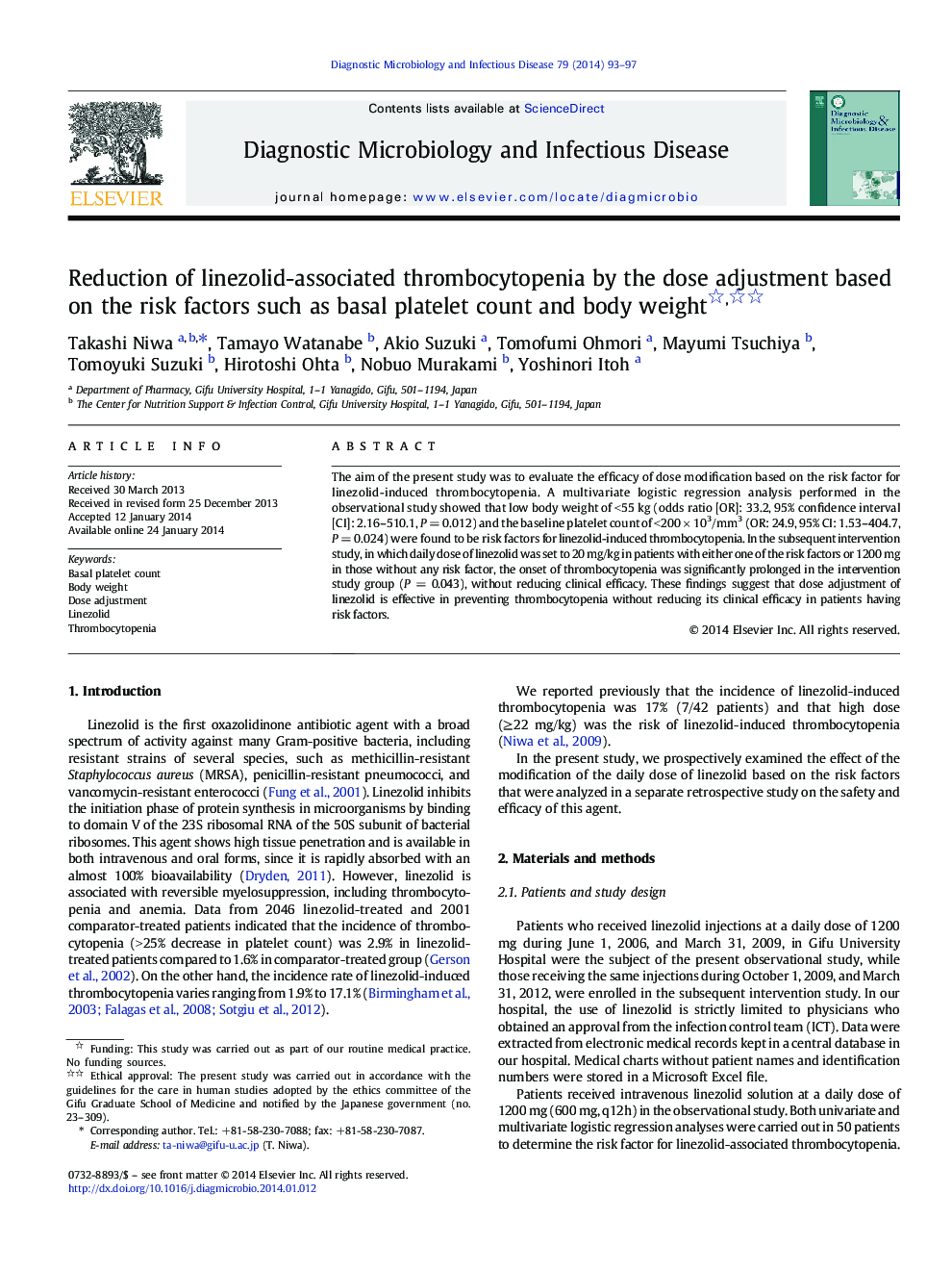| Article ID | Journal | Published Year | Pages | File Type |
|---|---|---|---|---|
| 6115745 | Diagnostic Microbiology and Infectious Disease | 2014 | 5 Pages |
Abstract
The aim of the present study was to evaluate the efficacy of dose modification based on the risk factor for linezolid-induced thrombocytopenia. A multivariate logistic regression analysis performed in the observational study showed that low body weight of <55 kg (odds ratio [OR]: 33.2, 95% confidence interval [CI]: 2.16-510.1, P = 0.012) and the baseline platelet count of <200 Ã 103/mm3 (OR: 24.9, 95% CI: 1.53-404.7, P = 0.024) were found to be risk factors for linezolid-induced thrombocytopenia. In the subsequent intervention study, in which daily dose of linezolid was set to 20 mg/kg in patients with either one of the risk factors or 1200 mg in those without any risk factor, the onset of thrombocytopenia was significantly prolonged in the intervention study group (P = 0.043), without reducing clinical efficacy. These findings suggest that dose adjustment of linezolid is effective in preventing thrombocytopenia without reducing its clinical efficacy in patients having risk factors.
Related Topics
Life Sciences
Immunology and Microbiology
Applied Microbiology and Biotechnology
Authors
Takashi Niwa, Tamayo Watanabe, Akio Suzuki, Tomofumi Ohmori, Mayumi Tsuchiya, Tomoyuki Suzuki, Hirotoshi Ohta, Nobuo Murakami, Yoshinori Itoh,
